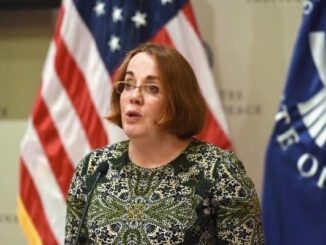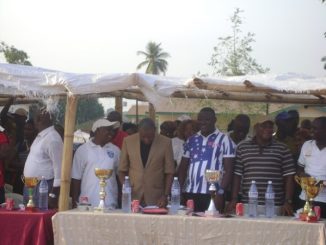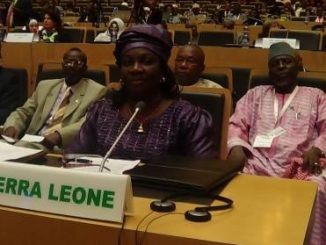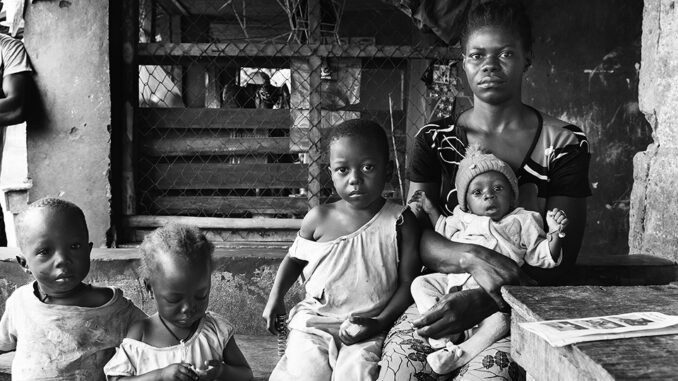
By Abdul Bero Kamara – Chief
27/10/21
I know you might be saying in your mind what the hell this guy is talking about.
I am not exaggerating; however, you are at liberty to see the above caption as a metaphor. The fact of the matter is I am trying to give a vivid picture of how the current living conditions looks like in once
upon a time sweet Salone.
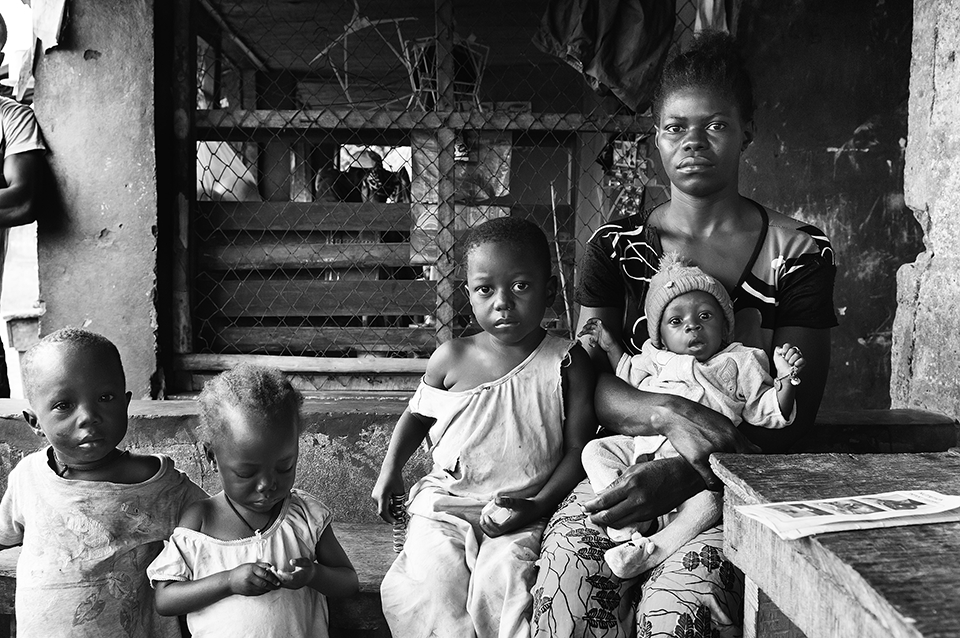
Under the astute stewardship of Former President Koroma, the national wealth was distributed evenly across the country in terms of infrastructure, free healthcare for lactating mothers and under five children, the quality of education was improved greatly, Sierra Leone was one of the safest country to live, and was the fastest growing economy in the world, unemployment was almost under control, investors were coming in mass, the economy was booming and
life was good as standard of living was very high compared to neighboring countries.
Sadly, the coming of President Bio has not only reversed all these gains, but he has created an environment that has made conditions of living in Sierra Leone look like Hell.

How? During the past three and half years there have been more talented young people running away to seek greener pastures in
foreign land, and those who are over there without the required documents, and have been put on a deportation list prefer to die over there than come back to Sierra Leone.
Besides, skilled professionals like doctors, nurses, lawyers, magistrates, engineers etc are also running away to another countries
as a result there have been more human capital flight under the leadership of President Bio compared to his immediate past predecessor.
The image of Sierra Leone under President Bio stinks with corruption,tribalism, nepotism, hence the investors that were supporting the economy during the reign of former president Koroma have all left, and
on the other hand, no serious investors want to come and invest under this current condition, which is evidence from the 150 trips he had made out to woo investors.
Obviously whilst the people of Sierra Leone are patiently still waiting for the potential investors as been told by President Bio,
hardship is getting worse every day.
Seemingly, Inflation is commanding the economy, albeit purchasing power parity (PPP) is diminishing disproportionately.
Conversely, the constant revenue that enters the consolidated funds is spent injudiciously, hence there had been no serious investment from the SLPP government, and not to mention the worsening balance of trade
during these past three and half years.
Naturally Sierra Leone is endowed with rich natural resources among them: diamonds, rutile, bauxite, gold, iron ore, limonite, platinum, chromites, coltan, tantalite, columbite, and zircon.
According to the Extractive Industries Transparency Initiative (EITI) Sierra Leone possesses one of the largest title reserves in the world.
Based on the EITI report, mineral exports contributed about 0.7% to the national GDP in 2018 and account for 64% of total export.
During this same year under review the revenue generated from its extractive industry operations is approximately USD 30 million, and 100% of these revenues came from the mining sector (EITI)
Also Sierra Leone has everything adventurous travelers could want –
exquisite, enviable, and exotic beaches like Tokeh, Lumley, Banana Island that is fringed by palms, rainforest jungles with monkeys
swinging through the trees, and a fascinating heritage.
Ideally, the tourism sector should generate at a bare minimum USD 10 million every year. It is evident the combine revenue just for these two sectors is enough for every Sierra Leonean to live on USD 100 a day as opposed to the current USD 1 a day, which is even below the expected UN $ 1.90 a day
Ironically, under the leadership of President Maada Bio in less than four years the prices of our basic essential food items had doubled, tripled or quadrupled. For example, before Dr Ernest Bai Koroma left office, a bag of rice was Between Le 200- 250, 000, and now a bag of rice cost almost Le 500,000 per bag, interestingly that is the
national minimum wage.
Which implies that 2/3 of Sierra Leoneans working in the public sector cannot afford to buy a bag of rice, cannot afford three square
meals a day.
The exponential increase in the prices of essential goods without any consideration to increase in salaries for the workforce does not only undermines economic growth, but also lays the foundation and create
the environment for the majority of Sierra Leoneans to become poor for the rest of their life.
Until then
Power must change hands in 2023

